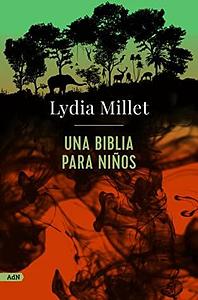Take a photo of a barcode or cover
People really loved this one. More of a 3.5 than a 3. Kids in a post-apocolyptic world...it's pretty gripping. But I liked "Leave The World Behind" so much more and couldn't help comparing the two.
This is a well written book. The beginning was for me the best part- harkening back to my childhood where all the best books were about feral children separated from the regulations of their parents and intent on inventing a new society. The prose is full of imagery and atmosphere. So much so that I needed to take breaks in order to escape the dark dystopian world of the novel. The book is full of symbolism that will continue to surface as I let the story settle in my mind. I did not give it 5 stars mainly because as much as I was drawn into the world, I was not drawn in enough to be able to let go of the many lapses of logic.
Whew. That was a wild ride. Lots of twists. Lots of turns. No clear outcome (which is not my fave) but maybe some good? I'm not sure. Perhaps kids are more resilient than we thought. Perhaps the bible IS a metaphor for science and nature. I mean, I suppose a lot of it is.
I, of course, read most of this book last year and then lost track of time and didn't finish before the end of the year. But it was a pretty good end to a pretty intense reading year.
I, of course, read most of this book last year and then lost track of time and didn't finish before the end of the year. But it was a pretty good end to a pretty intense reading year.
While it took me a minute to get used to the narrator, I was hooked once the story really got up and running. A cli-fi story told from the perspective of a teenage girl - the narration is very dry, sarcastic, very matter-of-fact for how horrifying the surrounding events are. There is lots of Biblical imagery, which I thought was well done and not over the top. This book is short, but packs a wallop - I imagine it will be a book that I remember for some time.
Absurdist and yet completely grounded. Love the narrator.
Deeply disturbing. (But great writing and interesting first person POV)
A strange and at times disturbing parable story. It’s probably more of a 3.5 for me. There isn’t much to look forward to as the near future climate crisis reaches its head, and the next generation of children are left to try to survive it and also take care of their parent generation that can’t stop the routine of selfishness to do anything helpful. Not a lot of hope for humanity, but maybe through belief in the holy trinity of Nature, Science and Art there can be something that comes out the other side.
Too simplistic, undeveloped characters, makes light of a serious issue... Where is the humor?
3 1/2*= "I liked it"+
Children of varying degrees of depravity with a penchant more for biblical interpretation than understanding seek to survive the aftermath of a catastrophic weather event while their affluent and virtually absent parents revel in their own oblivious debauchery. Moral of the story: God is dead, and we are our own salvation--if only we can stop being our own destruction.
Good writing, interesting characters that are easy to get attached to (I’m pretty partial to Jack), and enough legitimate twists to keep you wondering--even if it feels like you know exactly what is going to happen. (You don't, btw.)
This might be a book worth investing an in-depth study on, but I am not sure that I really want to take a second swipe at it. It is a good representation of humanism--especially of the inherent limitations and unavoidable pitfalls of a worldview that sees the world as ultimately godless.
I read this in the middle of preparing for a section on Modernist (post-WWI) literature and in the middle of a pandemic. Both are incredibly interesting backdrops for this ultimately hopeless novel.
ARC provided by publisher
Children of varying degrees of depravity with a penchant more for biblical interpretation than understanding seek to survive the aftermath of a catastrophic weather event while their affluent and virtually absent parents revel in their own oblivious debauchery. Moral of the story: God is dead, and we are our own salvation--if only we can stop being our own destruction.
Good writing, interesting characters that are easy to get attached to (I’m pretty partial to Jack), and enough legitimate twists to keep you wondering--even if it feels like you know exactly what is going to happen. (You don't, btw.)
This might be a book worth investing an in-depth study on, but I am not sure that I really want to take a second swipe at it. It is a good representation of humanism--especially of the inherent limitations and unavoidable pitfalls of a worldview that sees the world as ultimately godless.
I read this in the middle of preparing for a section on Modernist (post-WWI) literature and in the middle of a pandemic. Both are incredibly interesting backdrops for this ultimately hopeless novel.
ARC provided by publisher


